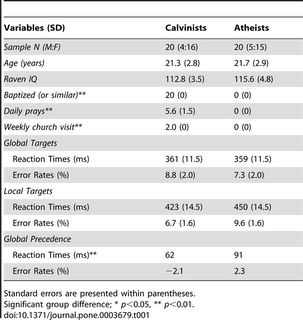Consider Yourselves Lucky.
In this particular business, the standard components of a novel pitch are the first three chapters plus two, maybe three pages of synopsis for the rest of the story. The pitch I just sent to my agent— the latest iteration thereof, at least— contains 36 pages of prose; 27 pages of "synopsis"; a two-page bullet-pointed executive summary of thematic arguments; and proposed jacket text, to be splayed across the dust cover if/when this fucker actually sells.
This is easily ten times the word count of the supplementary material usually attached to these things. My agent originally tried to get me to keep it to the usual three pages, and I complied, I really did. It's just that when one tries to synopsize one of my novels in three pages, the result is utterly incomprehensible. (The smart-asses in the audience may now point out that this only proves that such synopses perfectly capture the essential nature of my writing.) So, our experiment complete, the dude let me off the leash and dear God is he about to pay for it.
The rest of you get off easy. I'm only quoting my proposed jacket text here, because I think that it actually does do a decent job of hooking the story in the time it takes to run your eyes down a dust-jacket. (I've been writing my own jacket text for a while now; remind me to show you, some day, some of the fortune-cookie hack jobs Tor tried to slap on my books before I got involved.) So here, in 400 words or less, is the thumbnail for Dumbspeech:
This is easily ten times the word count of the supplementary material usually attached to these things. My agent originally tried to get me to keep it to the usual three pages, and I complied, I really did. It's just that when one tries to synopsize one of my novels in three pages, the result is utterly incomprehensible. (The smart-asses in the audience may now point out that this only proves that such synopses perfectly capture the essential nature of my writing.) So, our experiment complete, the dude let me off the leash and dear God is he about to pay for it.
The rest of you get off easy. I'm only quoting my proposed jacket text here, because I think that it actually does do a decent job of hooking the story in the time it takes to run your eyes down a dust-jacket. (I've been writing my own jacket text for a while now; remind me to show you, some day, some of the fortune-cookie hack jobs Tor tried to slap on my books before I got involved.) So here, in 400 words or less, is the thumbnail for Dumbspeech:
A Different Kind of Singularity.
The eve of the 22nd century. A world where the dearly-departed send postcards back from Heaven, and Jainist evangelicals make scientific breakthroughs by speaking in tongues; where genetically-engineered vampires solve problems intractable to baseline Humans, and soldiers come with zombie switches that shut off their own self-awareness during combat. A world under blatant surveillance by an alien presence that refuses to show itself.
Daniel Brooks is a living fossil: an old man in a world of immortals, a field biologist in a world where all biology has long since turned computational, an unwitting catspaw used by terrorists to kill thousands. Taking refuge in the Oregon desert, he turns his back on a humanity that shatters into strange new subspecies with every heartbeat. But he isn't hiding from anything; he awakens one night to find himself at the center of a storm that's about to turn all of history inside-out.
Now he's trapped in a ship bound for the center of the solar system. To his left is a grief-stricken soldier with a zombie switch in his head, obsessed by whispered messages from a dead son half a lightyear away. To his right is an autistic hacker who hasn't quite discovered that Dan Brooks is the man she's sworn to kill on sight. A vampire and its entourage of zombie bodyguards lurk in the shadows behind. And dead ahead, a handful of rapture-stricken monks takes them all to a meeting with something they will only call "The Angels of the Asteroids".
But whatever they encounter, there in the blinding maelstrom above the sun's north pole, is the furthest thing from anyone's vision of divinity. By the end of their pilgrimage the whole world is coming apart at the seams— and Dan Brooks, the fossil man, is face-to-face with the biggest evolutionary breakpoint since the origin of thought itself.
The Singularity's here. It's too late to go back. And all those starry-eyed optimists, the extropians, the transhumanists, the rapture-nerds and technophiles who sang the praises of technology=magic — somehow, none of them realized there'd be no room for humanity in a post-human age …
Labels: Dumbspeech, writing news











